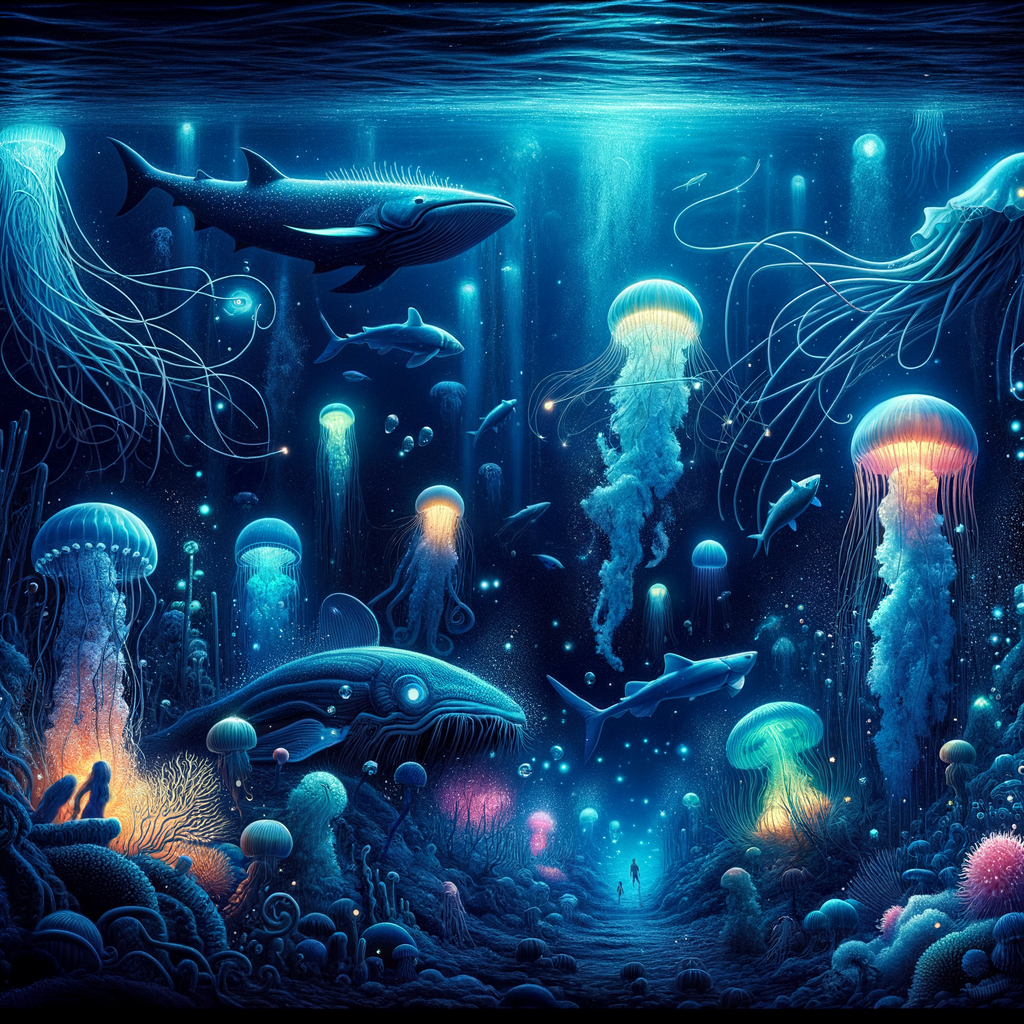Physical Address
304 North Cardinal St.
Dorchester Center, MA 02124
Physical Address
304 North Cardinal St.
Dorchester Center, MA 02124

When we think about exploring new frontiers, our minds often leap to the stars and the vastness of space. However, there is a realm much closer to home that remains largely unexplored — our oceans. Specifically, the deep sea is home to some of the most intriguing and least understood creatures on Earth. This article will delve into the mysteries surrounding these fascinating organisms.
More than 80% of our oceans are unexplored, with the deep sea being one of the most inaccessible regions. Below 200 metres, where sunlight fails to penetrate, begins a world shrouded in darkness known as the ‘twilight zone’. Deeper still lies the ‘midnight zone’, plunging down to 11,000 metres at its deepest point in Mariana’s Trench.
Exploring these depths poses significant challenges. High pressures can reach over 1,000 times atmospheric pressure at sea level, temperatures hover around freezing point and there is total darkness. These extreme conditions require specialised equipment and vehicles capable of withstanding such harsh environments.
Yet despite these hostile conditions, life thrives here in abundance. The creatures found in this environment have developed incredible adaptations to survive. Bioluminescence is common among deep-sea dwellers; they generate their own light through chemical reactions within their bodies to attract prey or mates and deter predators.
The anglerfish is perhaps one of the most recognisable deep-sea creatures due to its unique hunting method. It uses a bioluminescent lure attached to a rod-like appendage on its head to attract unsuspecting prey. Another fascinating creature is the giant squid, known for its elusive nature and legendary battles with sperm whales. It wasn’t until 2004 that scientists captured the first images of a live giant squid in its natural habitat.
At even greater depths, you can find creatures such as the fangtooth fish, known for its large, sharp teeth and pressure-resistant body. There’s also the dumbo octopus, named for its ear-like fins that resemble the Disney character Dumbo’s ears. This octopus flaps these fins to swim through the water, a behaviour not seen in any other species.
Why should we explore these dark depths when there are still many areas on land yet to be discovered? Firstly, understanding more about our oceans can help us predict climate change impacts. The deep sea plays a crucial role in global carbon cycling and therefore directly affects our climate.
Secondly, deep-sea organisms may hold answers to medical breakthroughs. Organisms living under high-pressure conditions often produce unique proteins and bioactive compounds that could prove beneficial in pharmaceutical research.
Despite being out of sight and mind for most people, human activities have started to impact even these remote regions. Overfishing, pollution from plastics and chemicals, deep-sea mining for minerals — all pose significant threats to this fragile ecosystem.
As we continue to explore this last frontier on Earth, it’s important that we do so responsibly. We must balance our curiosity with conservation efforts to ensure these extraordinary creatures and their habitats are preserved for future generations.
The mysteries of the deep sea continue to captivate scientists and explorers alike. Each expedition reveals new species and uncovers more about the complex ecosystems that exist in these extreme environments. As technology advances, we can look forward to discovering more of this fascinating world beneath the waves.